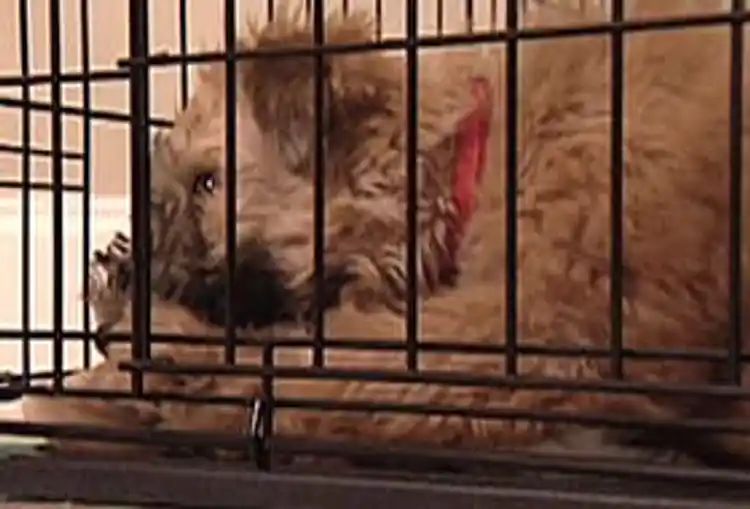Crate Training

Hide Video Transcript
Video Transcript
: It's time for little Rosie here to learn to love her crate. I'm going to show her owner, Bob, just how to do that. If you crate train your puppy young enough, a crate becomes a really positive experience and they enjoy being in there. Excellent job that's a great example! You're going to teach the puppy to do the exact same thing. For a good couple of weeks use treats to lure her into the crate so she creates a positive association Awesome! Look at you sitting in there like your sister! When you first crating your puppy they are not be used to being in there by themselves, so they may whine and bark for a little bit. So important that you totally ignore the barking and whining, never let them out unless they are quiet. Most metal crates come with a divider. The divider is going to be very handy in teaching her not to go potty in the crate. If you give them too much space in their crate too soon, she's going to learn she can go potty in one corner and then come and lay down in the other. So as she grows you'll slowly move the divider to give her more space. For at least two weeks I would feed her both her meals--breakfast and dinner-- in the crate. It's another way to create a positive association to being in their crate. The more positive things you can do in the crate, the better. If you need to leave your dog in the crate for an extended period of time make sure you give them a long term edible chew. I have a couple of favorites. A cow hoof is a favorite you can fill it with peanut butter or yogurt and freeze it-and they'll chew on this for a long time. And she's killing that thing. When she gets bored of it and just worn out, put it in a pot with chicken broth give it back and she'll be all into it again. Some other really great ones are compressed rawhides and bully sticks. So switch them out every day so you're dog doesn't get bored with them, it keeps them engaged if you give them a new one every day. Puppies should be crated at least a year to prevent nuisance behaviors like chewing and of course, house training—revisit crate training throughout your dog's life so that if they ever do end up having to go to the vet clinic or boarded, they are comfortable being in their crate and they are not going to get stressed out. For WebMD's One Minute Puppy Trainer, I'm Kate Jackson.

